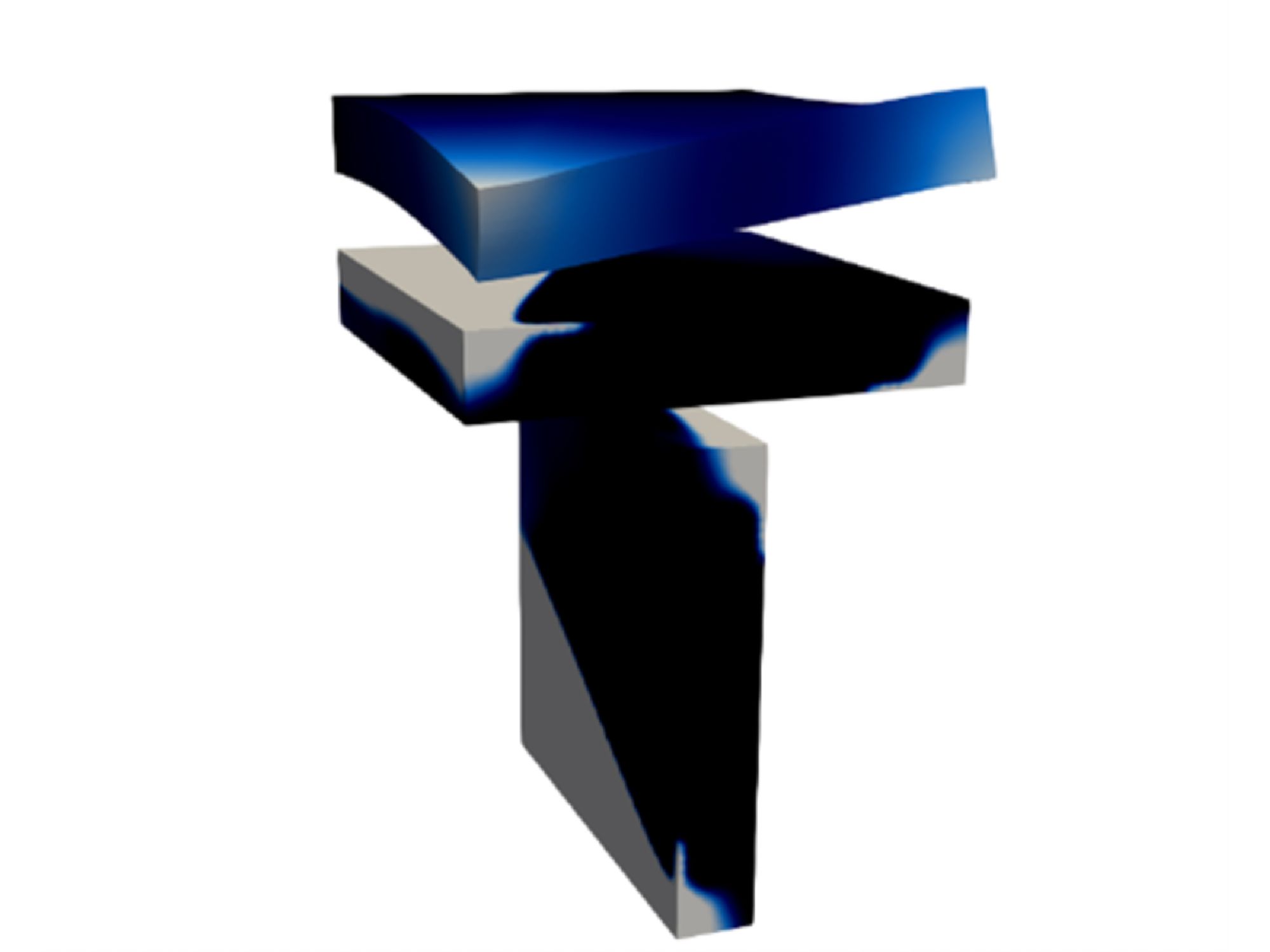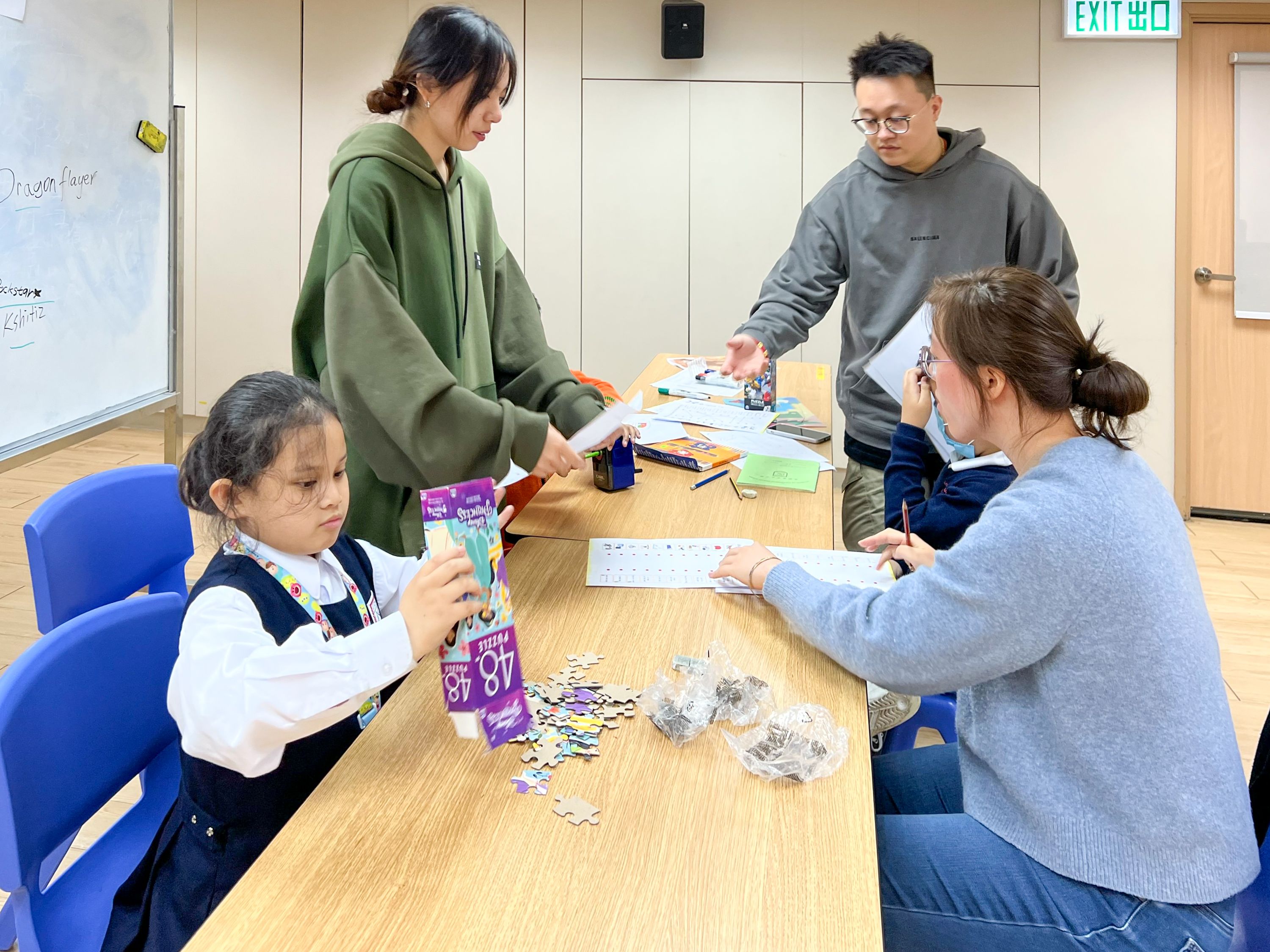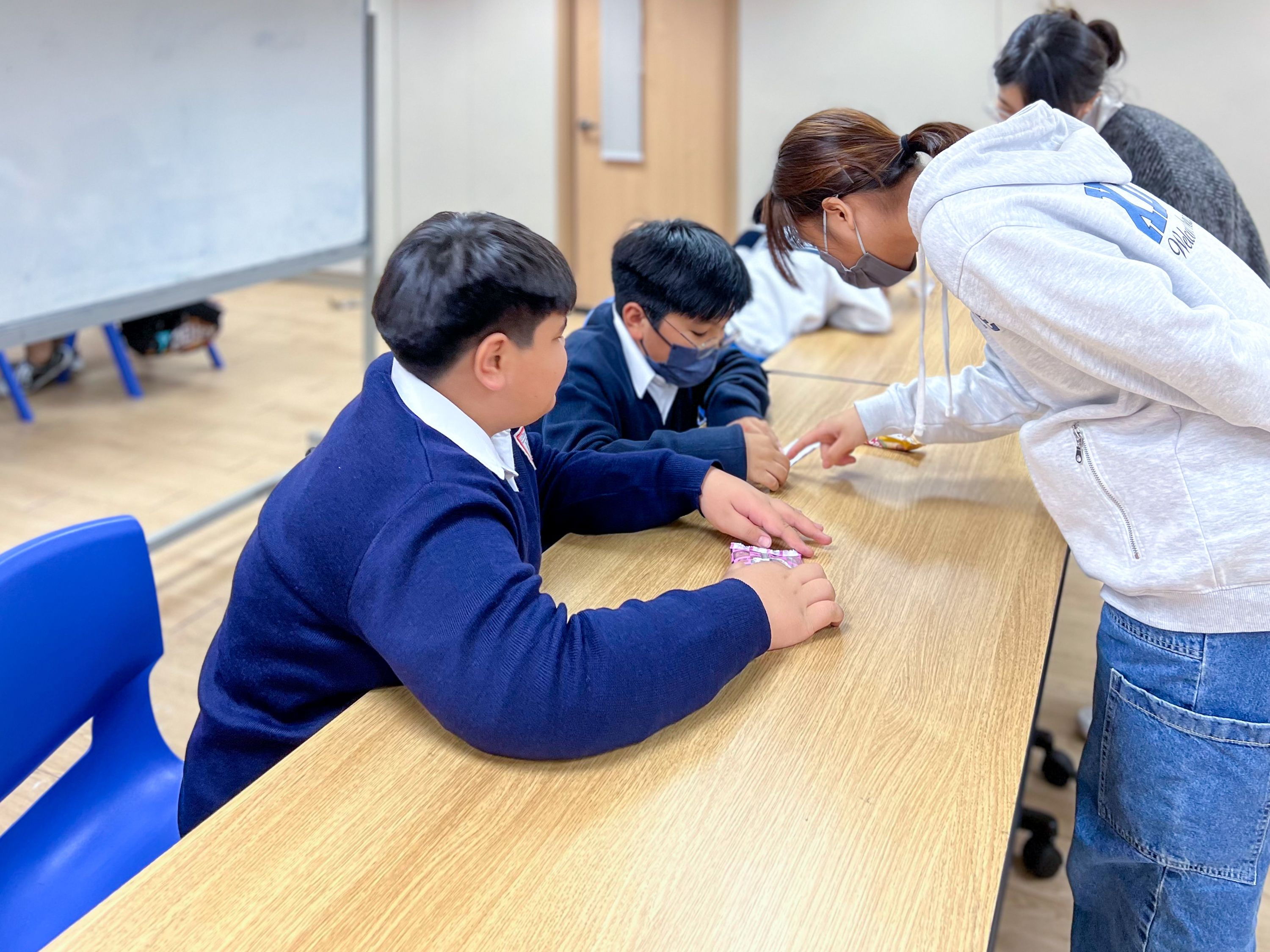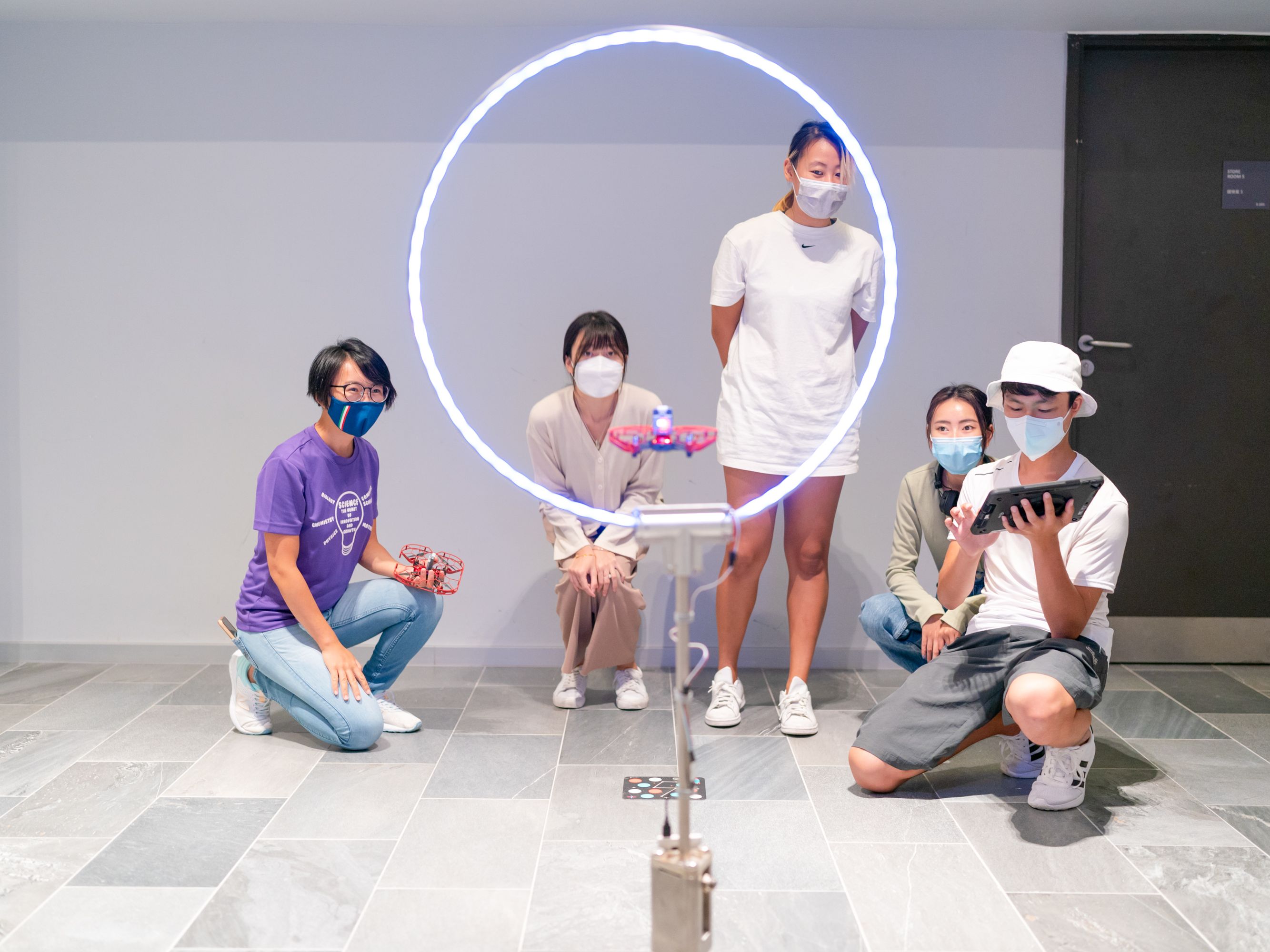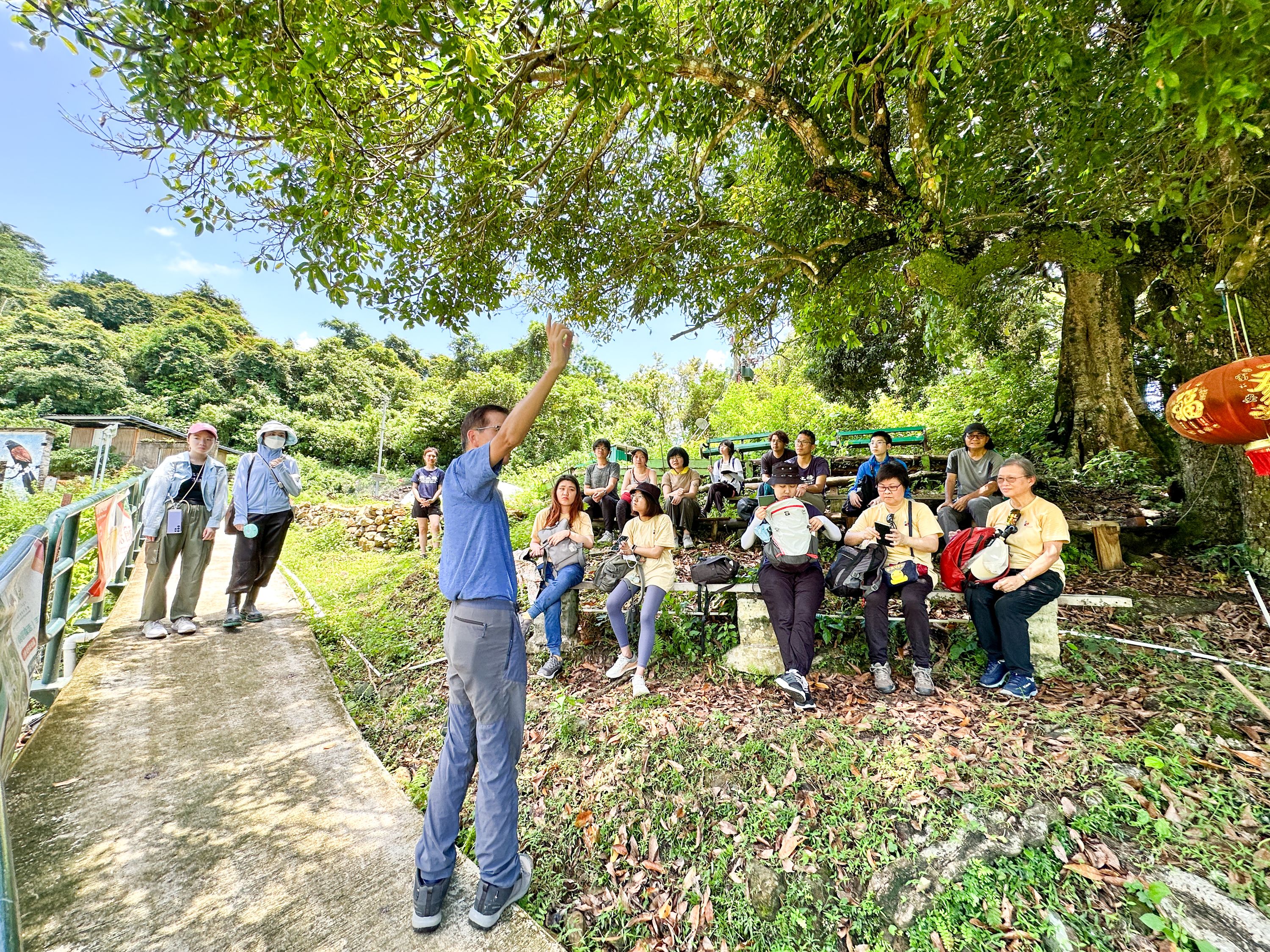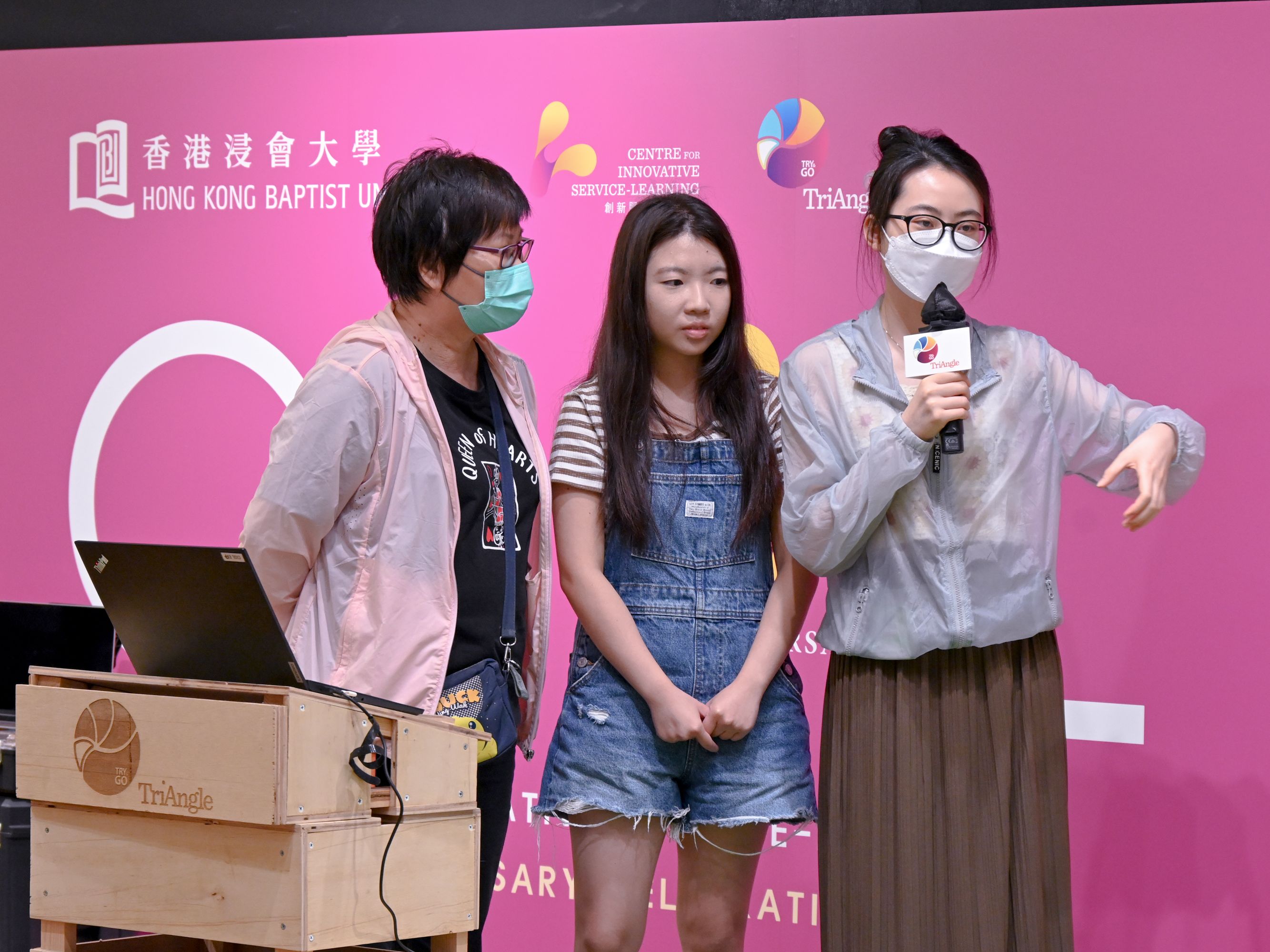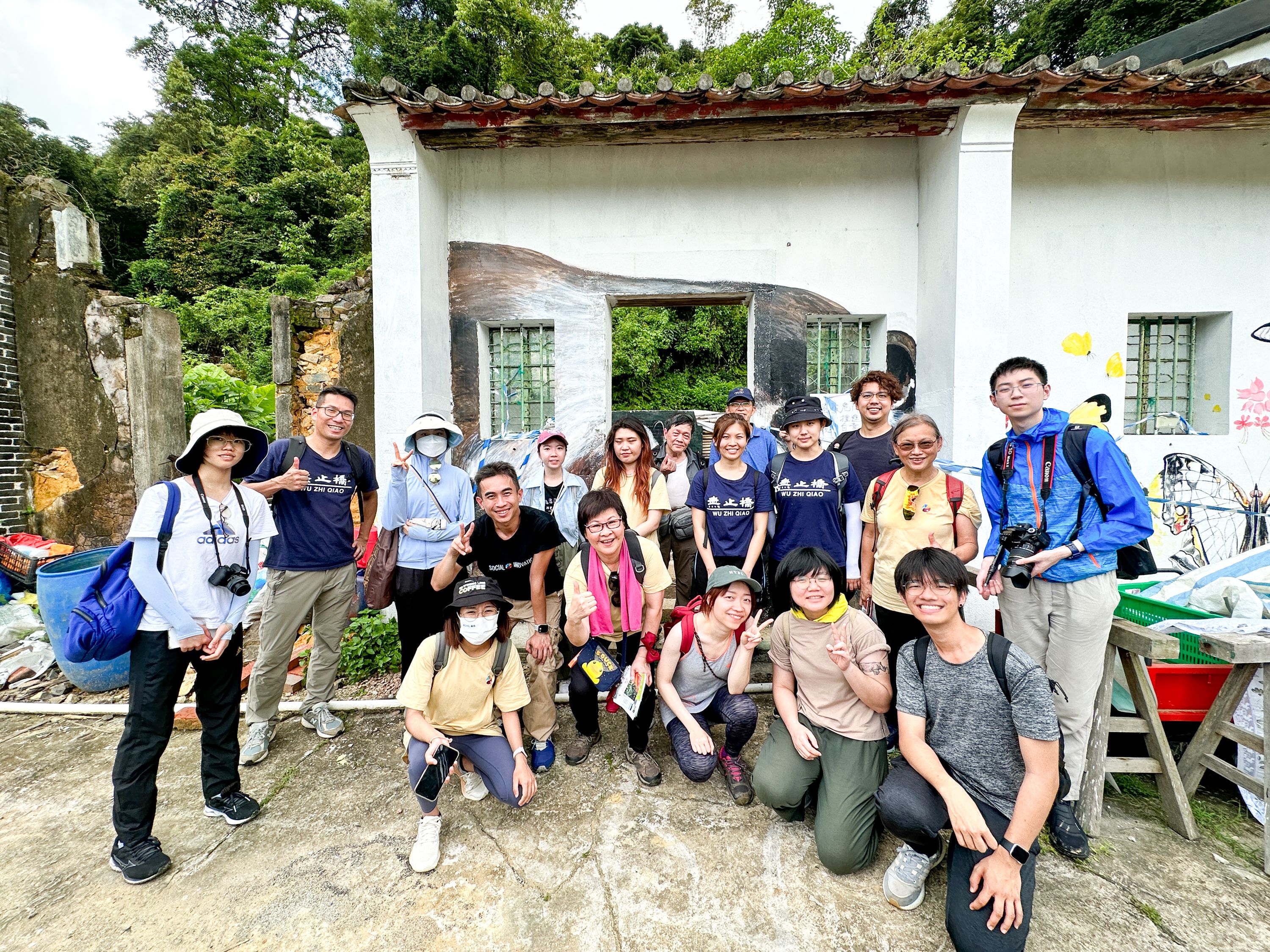SDG 09: Industry, Innovation and Infrastructure
Community engagement for social sustainability
The service-learning course led by Dr Day Wong of the Department of Sociology worked with four NGOs that support environmental preservation, health and well-being, gender equality and educational parity. As a result of partnerships with these NGOs, over 1,100 service users participated in a variety of activities. Undoubtedly, these various partnerships with NGOs helped increase public awareness of the issues at hand, while giving students a chance to reflect on their volunteer experiences.
Design for smart city: Towards a sustainable living
This General Education capstone course provided students with a comprehensive understanding of sustainable and socially responsible practices through a series of technological innovation training activities. In this course, students conducted research and evaluated key concepts related to “Smart Cities”, such as AI and big data, and applied them to different aspects of society by employing interdisciplinary approaches. Through the partnership with elderly care centres, students designed smart healthcare solutions to monitor the health of the elderly, with the ultimate objective of enhancing and sustaining their quality of life despite resource constraints.
HKBU WZQ Makers
During the summer, the first “HKBU WZQ Makers” event was organised by TriAngle of the Centre for Innovative Service-Learning in collaboration with the Wu Zhi Qiao (Bridge to China) Charitable Foundation. HKBU students and the elderly from the community visited Mui Tsz Lam Village to learn about its history, its rich Hakka culture and the challenges in the revitalisation of the rural area. The participants then formed teams to devise innovative proposals to address the issues. Above all, two Chinese Medicine students made use of their knowledge of traditional Chinese medicine and health and held community events to contribute to the revitalisation of Mui Tsz Lam.
Skills Empowerment Scheme: Crowdsource learning community
Over 50 students joined the Google Crowdsource Learning Community to build their portfolios with certifications from Google. They interacted with trained facilitators and Googlers from around the world, making meaningful contributions that directly impacted Google’s AI. Students were awarded certificates of completion from the Crowdsource team at Google, along with other exciting opportunities.
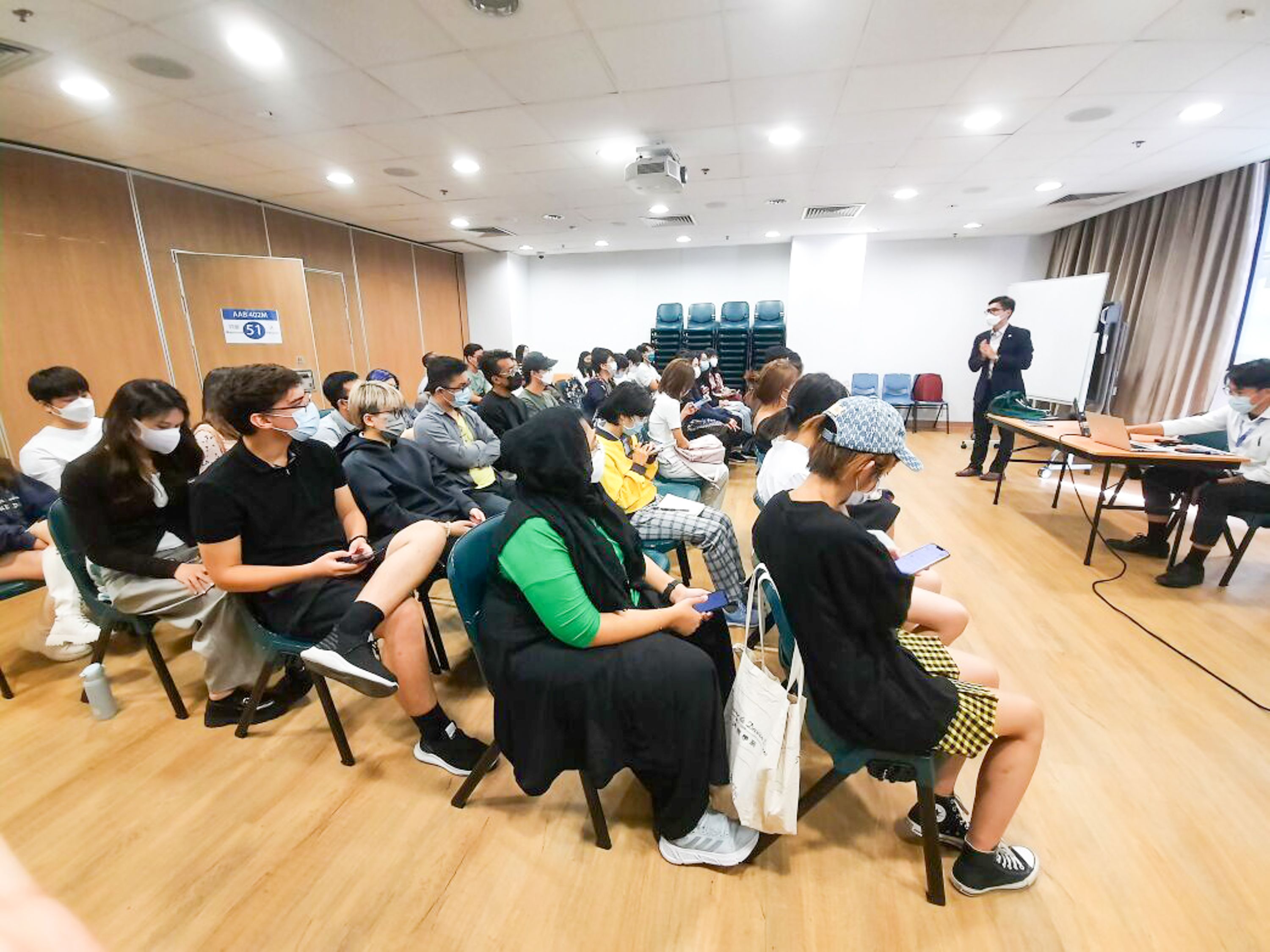



Interpreting in the age of Artificial Intelligence: Insights from “Big” interpreting data
Department of Translation, Interpreting and Intercultural Studies
Author: Jun PAN
This project delves into the intricate world of language interpreting. By unifying and expanding several existing collections, the study builds large datasets of interpreted speeches in various languages to decode the shared strategies used by interpreters. These strategies, employed under live interpreting and time pressure, illuminate the complex expertise of interpreters, providing valuable cross-domain insights.
This research provides insights into shared linguistic patterns in interpreting and training. The research outputs can inspire groundbreaking technologies, leading to spinoffs like Enter-Link, an all-in-one digital solution for realtime language services. Incorporating elements of artificial intelligence, service-learning and knowledge transfer, this digital platform aims to break down language barriers and make interpreting services more accessible.
The project exemplifies effective data sharing practices and policies. It showcases how data science can convert insights into impactful technological solutions and illustrates the power of blending language skills with digital prowess to address real-world challenges and enhance linguistic accessibility.
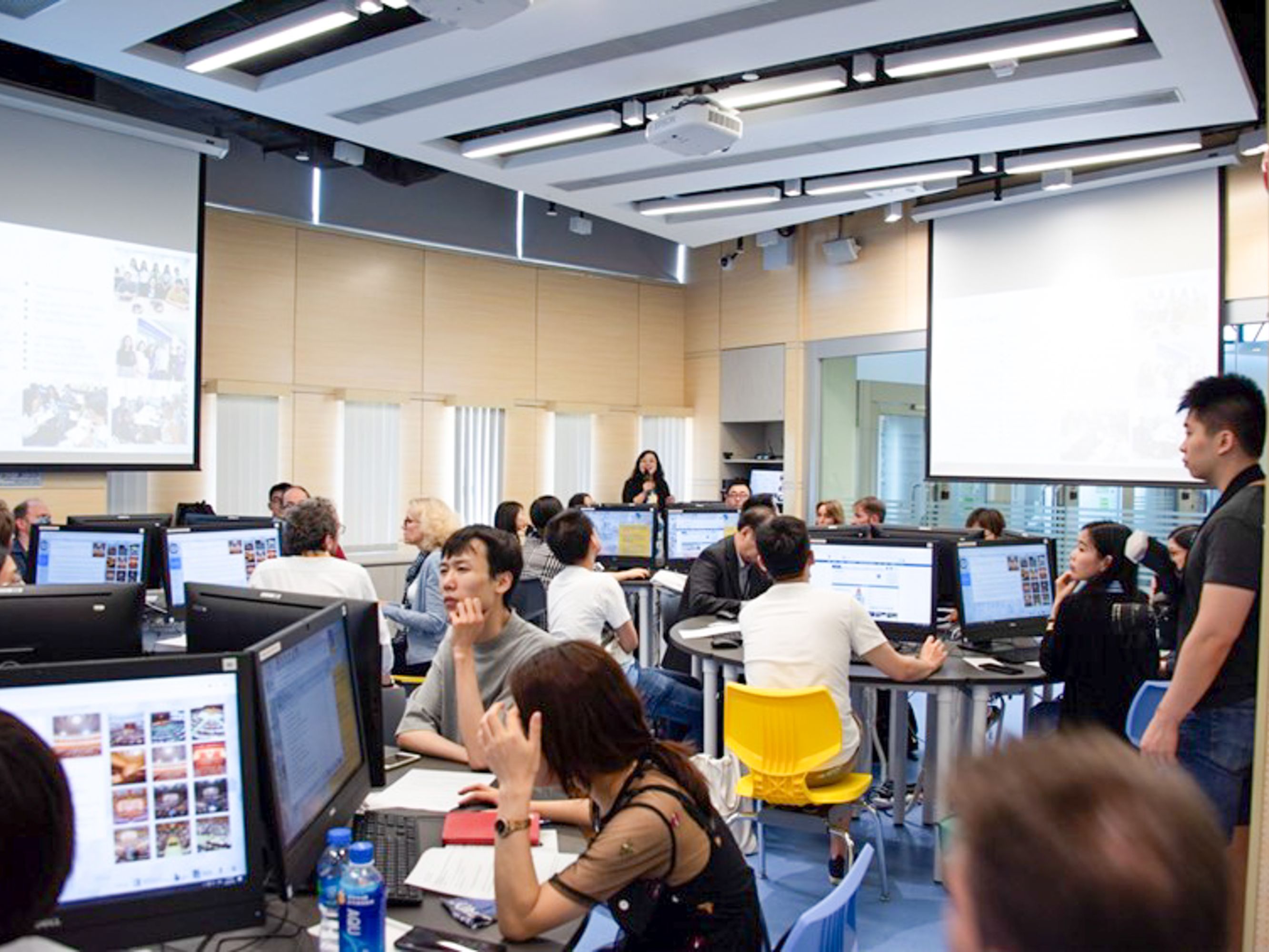

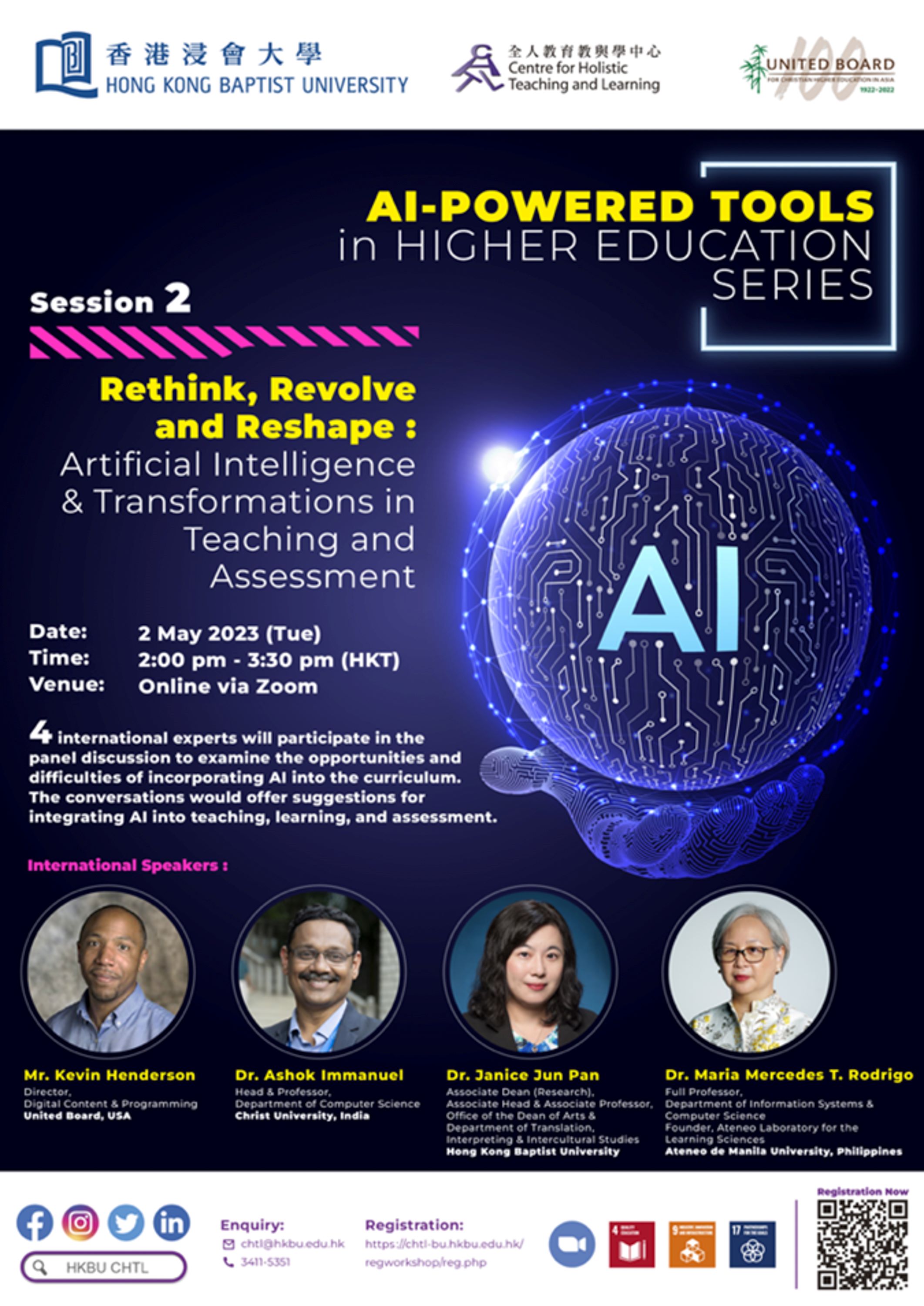

Mathematical studies of optimal designs in 4D printing
Department of Mathematics
Author: LAM, Kei Fong
4D printing refers to the newly developed field derived from using 3D printing to create objects from smart materials. These objects are capable of changing shape and functionality in response to various environmental stimuli, leading to promising capabilities in soft robotics, medical implants, textile and automotive industries. However, 4D printing has yet to be part of the manufacturing mainstream, due to unreliable mechanical behaviour after prolonged usage. In this project, it is proposed to overcome this issue by utilising a mixture of different smart materials and studying how to optimally distribute these different smart materials so that the overall structure exhibits the desirable shape change after applying a stimulus. Interesting mixtures have been created that allow the structure to bend and twist in ways similar to those seen in current applications. This work offers a mathematical rigorous approach to studying these optimal design problems in 4D printing.


